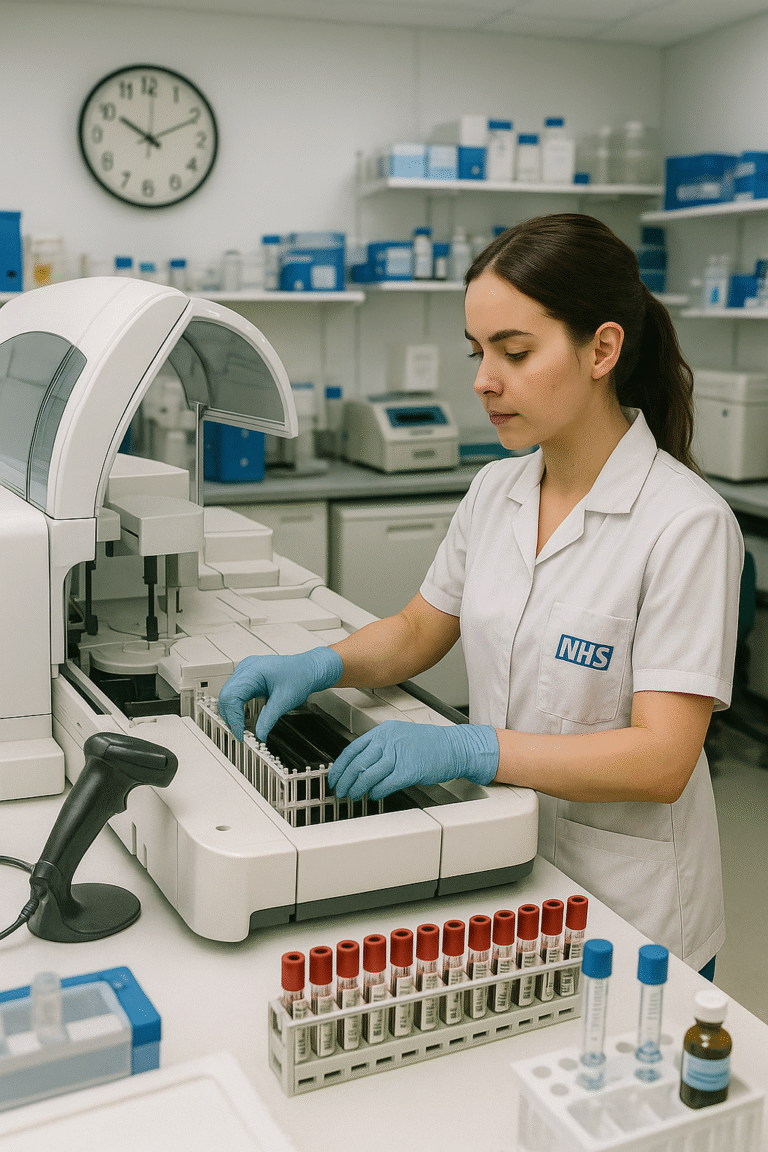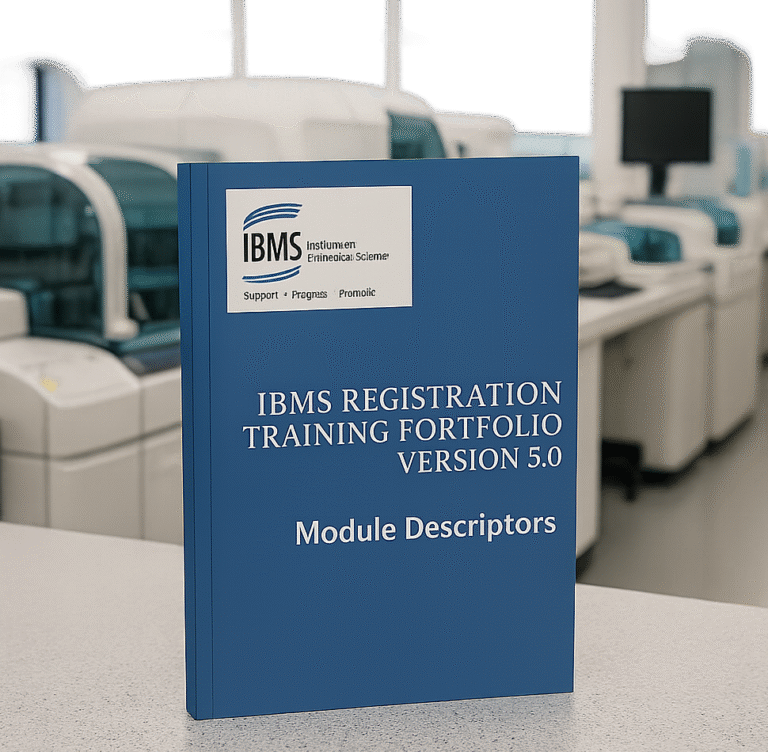What is CPD and why is it important for Biomedical Scientists? CPD, or Continuing Professional Development, is a vital part of maintaining your HCPC registration and ensuring you remain competent, confident, and up to date in your professional role. Whether you’re a trainee, a newly qualified BMS, or a senior staff member supporting others, understanding CPD and how to approach it strategically can enhance both your career and patient care. In this post, we’ll explore the meaning of CPD, how to access accredited CPD training and courses, and how to manage your CPD certification effectively.
What is CPD and why is it important for Biomedical Scientists? CPD, or Continuing Professional Development, is a vital part of maintaining your HCPC registration and ensuring you remain competent, confident, and up to date in your professional role. Whether you’re a trainee, a newly qualified BMS, or a senior staff member supporting others, understanding CPD and how to approach it strategically can enhance both your career and patient care. In this post, we’ll explore the meaning of CPD, how to access accredited CPD training and courses, and how to manage your CPD certification effectively.
📚 What Is CPD?
CPD stands for Continuing Professional Development. It refers to the learning activities professionals undertake to develop and enhance their abilities. For Biomedical Scientists, it is required to maintain HCPC registration and ensure safe, evidence-based practice.
CPD includes:
- Attending CPD training sessions
- Completing accredited CPD courses
- Participating in webinars or conferences
- Reading scientific literature
- Reflective writing and mentoring others
✅ CPD Meaning and Its Value in Biomedical Science
So, what does CPD mean in real terms?
It means:
- Staying competent in your current role
- Preparing for promotions or specialist posts
- Meeting CPD accreditation requirements from HCPC or IBMS
- Improving patient safety through updated knowledge
By keeping your skills up to date and showing evidence of learning, you also demonstrate your professionalism and commitment to healthcare science.
🏆 CPD Certification and Accreditation – What to Look For
To make your CPD count, ensure the resource is CPD accredited or CPD certified. This means it meets recognised quality standards and is formally recognised by a professional body or education provider.
Look for:
- IBMS-accredited events or short courses
- Certificates from platforms like FutureLearn, Coursera, or Udemy
- Events listed on the annual CPD Show or via NHS e-learning hubs
If your training is not certified, you can still reflect on it—just make sure it’s relevant to your scope of practice.
🎓 Top CPD Courses and Training Options for Lab Professionals
Here are some highly rated CPD courses and CPD training opportunities you can take online:
🧑🏫 1. FutureLearn – Coaching and Mentoring in Healthcare
- Ideal for BMS staff training others or completing IBMS CEP
- CPD certified with digital certificate
🧬 2. Coursera – Clinical Data Science or Laboratory Management
- Accredited by top institutions
- Offers CPD certification on completion
🧪 3. Udemy – Train the Trainer: Lab Education Skills
- Practical, affordable, and CPD compliant
- Lifetime access for long-term reference
📅 How to Plan Your CPD Training Year
Effective CPD training is not just about ticking boxes—it’s about planning purposeful learning that supports your career development. Biomedical Scientists are encouraged to approach CPD as a continuous, structured process that aligns with their workplace needs and personal goals.
Start by reviewing your current role and identifying any gaps in your knowledge or skills. This could include lab techniques, leadership, communication, or changes in legislation. Next, choose CPD courses that are CPD accredited or CPD certified, so your learning is recognised and easy to document.
Creating a yearly CPD plan helps you stay on track. Block out time for key activities like reading journal articles, attending webinars, or mentoring junior staff. Tools like the IBMS ePortfolio or a CPD tracker spreadsheet can make reflection and record-keeping easier.
Remember to reflect after each learning activity—this is what gives your CPD certification meaning. The HCPC values impact over hours. Even small, informal learning moments can count, as long as they are recorded and linked to your practice.
A well-structured CPD plan ensures you’re always ready for audits and confident in your competence.
📂 Managing Your CPD: Tips for Success
To meet CPD certification requirements, keep a portfolio that includes:
- Title of the activity
- Date completed
- Reflection on what was learned
- Evidence (certificate, notes, or screenshots)
You can use:
- IBMS CPD ePortfolio
- CPDme subscription
- Notion or Excel to log activities and reflections
🧩 Final Thoughts
CPD is more than a tick-box—it’s your professional lifeline. It shows your commitment to excellence, ensures patient safety, and keeps your skills sharp in a fast-paced healthcare landscape.
Whether you’re browsing new CPD courses, attending a CPD show, or planning your next CPD training, make sure it’s aligned with your goals and practice area.
Sign up for free class
It’s easy and free!










